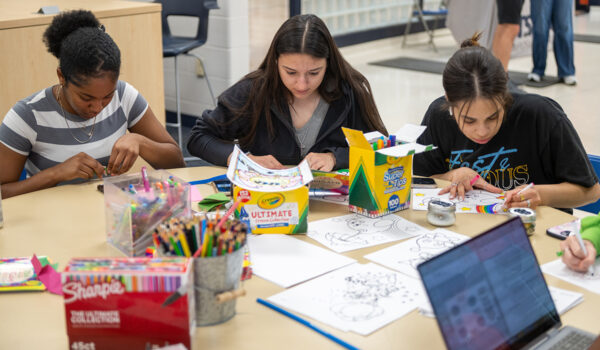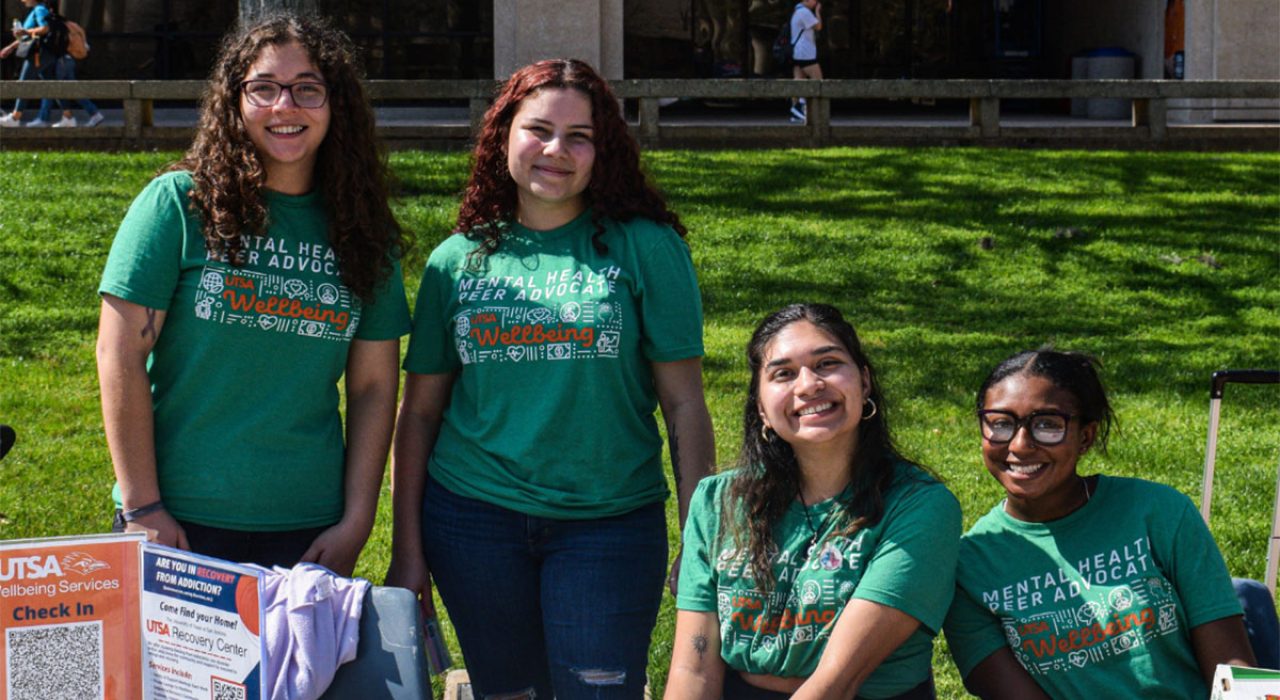This month, students at the university’s academic campus benefited from a Fall Break in the middle of the semester, offering time to relax and recharge after midterms. With no classes on Monday, Oct. 13, and Tuesday, Oct. 14, students enjoyed a long weekend following World Mental Health Day.
The university will also host its first Well-Being Day on Wednesday, Oct. 22, giving students the chance to attend events and learn about resources that support all dimensions of well-being, including intellectual, emotional, physical, spiritual, financial and social.
These new offerings are among the recommendations of Enhancing Well-being Task Force, which gathered student feedback and identified ways to enhance and expand the university’s well-being programs. While the task force concluded its work in the spring, its recommendations are now being implemented across the university. Additional changes — such as revising the university’s syllabus template to include well-being content and improving referral systems to connect students with resources — will be introduced in the coming years.
Expanding student well-being initiatives across campus
In addition to Fall Break and Well-Being Day, the university has launched several new efforts that demonstrate its deep and ongoing commitment to student well-being:
- NAMI On Campus: With funding from LG, UT San Antonio now has a student-led chapter of the National Alliance on Mental Illness (NAMI). The focus is to help reduce stigma around mental health by creating a peer-to-peer education network, hosting awareness events and offering NAMI programs that make it easier for students to talk openly and seek help.
- JED Campus: This fall, UT San Antonio became a JED Campus, joining a national network of colleges and universities committed to strengthening student mental health. As part of this program, the university will work closely with the JED Foundation over the next 18 months to review current efforts and develop a plan focused on suicide prevention and overall well-being.
- Coaching for neurodivergent students: The university is piloting a coaching program to provide tailored support for neurodivergent students.
- The seven College Student Success Centers now offer regular well-being-focused events and activities throughout the semester.
Additionally, the university will continue its membership in the Texas Higher Education Collaborative for Wellbeing, a results-driven community of Texas colleges and universities focused on catalyzing large-scale impact within and across campuses to identify and address systemic barriers to well-being and mental health.
Upon joining the consortium last fall, the university administered the Well-being Improvement Survey for Higher Education Settings (WISHES), a tool made available to member institutions to administer a short survey multiple times per year to students to quickly assess their experiences and campus conditions that impact well-being.
In 2024–2025, a little over 700 students at the university’s academic campus responded to the survey, answering questions within the topics of health and well-being, mental health support, flourishing and belonging, academic confidence and campus engagement. The survey will be conducted again this year.

Looking ahead
The integration between UTSA and UT Health San Antonio presents many new opportunities to expand and enhance student well-being across the new, unified institution. Even before merging, the two universities partnered to bring the UT Health San Antonio Wellness 360 health and counseling clinic to the Main Campus.
Now, as a Carnegie R1 university with a world-class health science center and clinical health enterprise, UT San Antonio is positioned to serve as a launchpad for even greater innovation in support of student well-being.



